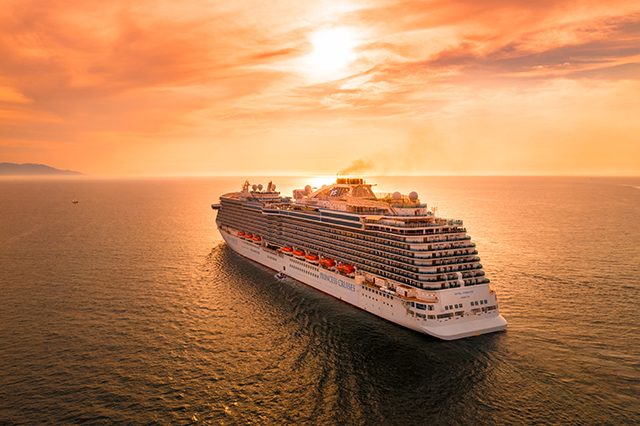
A Netflix documentary series bared the plight of Filipino employees in Western cruise ships and how cruise lines—and governments—get away with it.
Award-winning host Hasan Minhaj explained the dark realities behind the fun and luxury of the cruise ship industry. Among these are terrible working conditions, water pollution and questionable national and international laws that benefit employers over workers.
Minhaj explores the issues on an episode of “Patriot Act with Hasan Minhaj” on August 26.
Minhaj cited here that a third of all crew members or seafarers are Filipinos, particularly in the Royal Caribbean cruise line.
While this may seem like an economic boost for the crew, the celebrated political commentator shared that seafarers earn an average of a scarce $500 a month or $1.80 an hour while working 70 to 90 hours a week without overtime pay.
Filipino seafarers, in particular, are barred from filing lawsuits or cases from their employers.
The Philippine arbitration system follows a predetermined compensation chart wherein each injured body part has a designated price that the government will pay.
Minhaj presented data from the Philippine Overseas Employment Administration to illustrate his point.
“If a Filipino cruise employee loses his ear, he can get up to $5,225, a ring finger is $3,360, and if you paralyze both legs, that’s $60,000,” he said.
Such process makes hiring Filipinos more favorable for the ship company in terms of liability for any untoward incident.
Because these circumstances are not evident to others, working in cruise ships still looked appealing to many Filipinos.
According to an article, the Royal Caribbean cruise line alone accounted for 60% of the cruise line’s workforce last year and was open to hire up to 30,000 more as the global industry continues to grow.
In 2019, a German recruitment company for cruise ships found that that cruise companies will soon require at least 100,000 new employees in the next three years.
Risky maritime laws for cruise employees
On the Netflix show, three large cruise lines were presented—the Royal Caribbean, the Norwegian Cruise Line and Carnival.
Minhaj said that these companies control more than 80% of the market worth $50 billion. The industry is also steadily growing.
However, these cruise lines also practice unjust labor practices and they get away with it due to loopholes and bizarre provisions in maritime laws.
Flags of Convenience
The flag of convenience allows ship owners to register their vessels to any preferred country even if the parent company’s headquarters are located in the United States.
“As a bonus, they get to follow that country’s tax laws, labor laws and safety regulations,” Minhaj explained.
For example, the Carnival ships are registered in Panama, while ships from the other two are registered in the Bahamas. Meanwhile, their main offices where their executives go to work are in Miami, Florida.
The confusing system saves them from paying large amoutns of taxes and from accountability in treatment of workers and preventing crime.
Cruise Vessel Security and Safety Act
The Cruise Vessel Security and Safety Act is a law signed by former U.S. President Barack Obama in 2010 that required ship owners to report any serious crime act that happened on the cruise to the Federal Bureau of Investigation.
Serious crimes considered in the measure are homicide, suspicious deaths, missing American national, kidnapping, assault with serious bodily injury and sexual assault.
However, the caveat is that it’s up to the cruise lines to determine if an incident should be reported or not.
Minhaj cited a report that states sexual assault is the most frequent type of alleged crime on ships and more than a third of the victims are minors.
Death on the High Seas ACT or DOHSA
The Death on the High Seas Act is a law in the 1920s that allows the victims’ families to sue cruise lines for damages on actual expenses and any dependent beneficiaries only.
Actual expenses refer to the cost of the funeral. Dependent beneficiaries comprise the cumulative income the victim is supposed to earn for a lifetime. This, however, leaves off minors and retired people who don’t earn money.
Most passengers who die onboard are children who drown in swimming pools and water parks.




